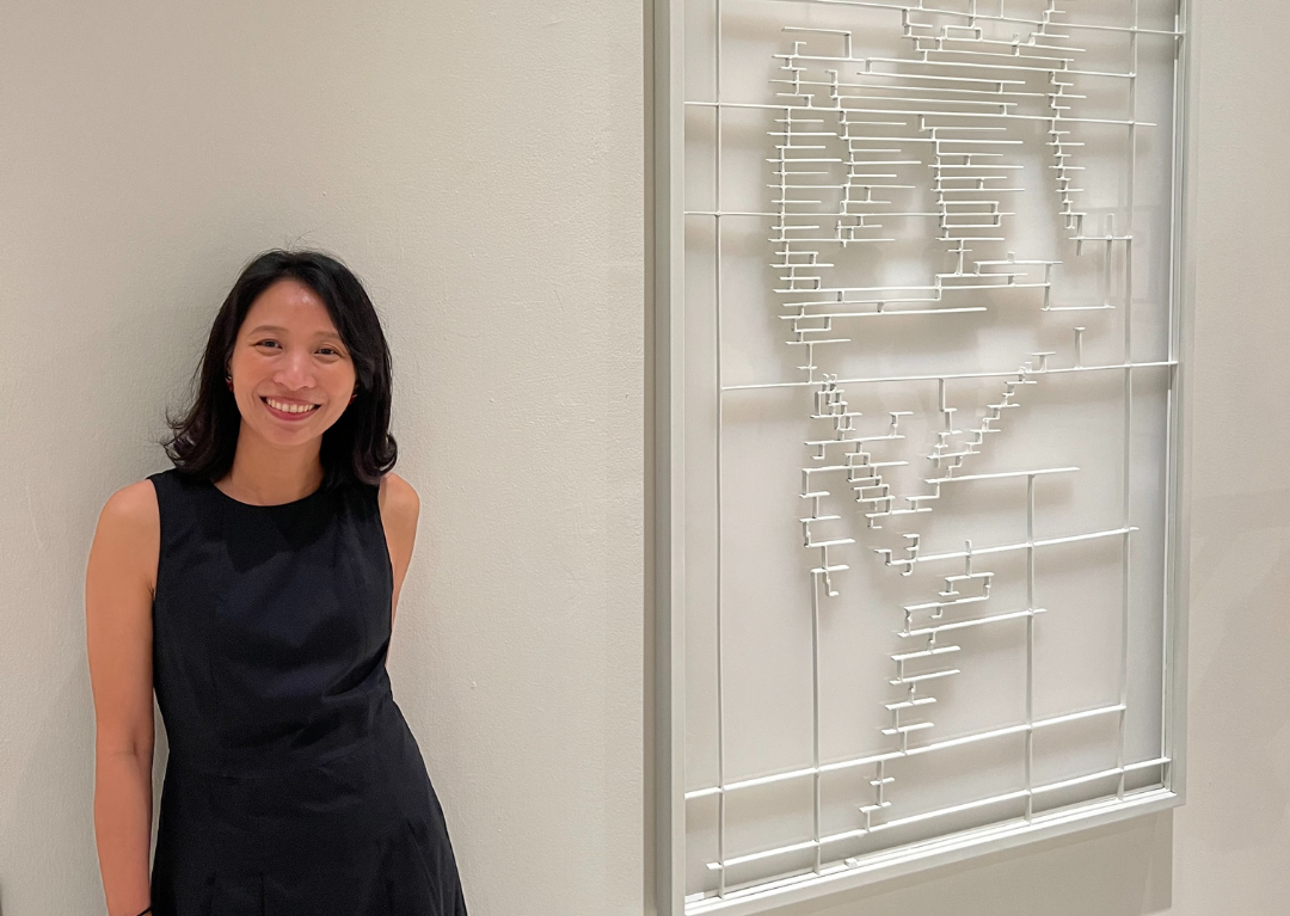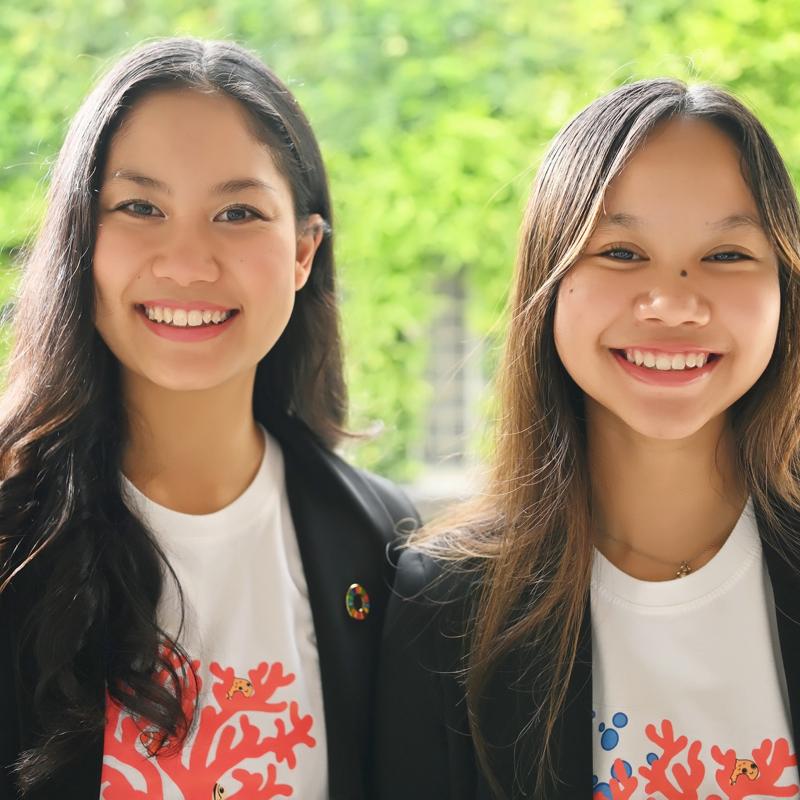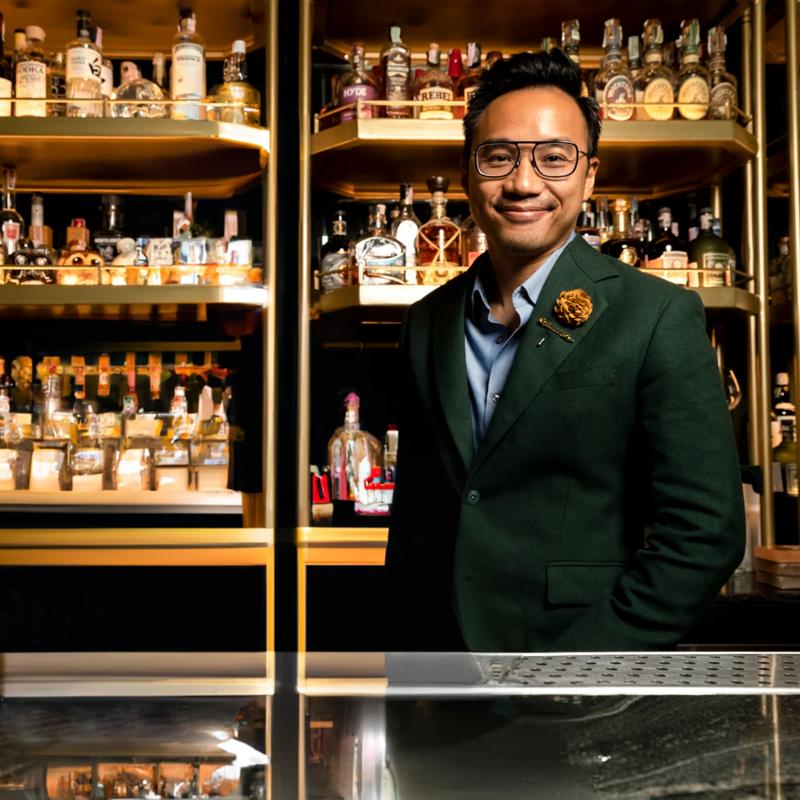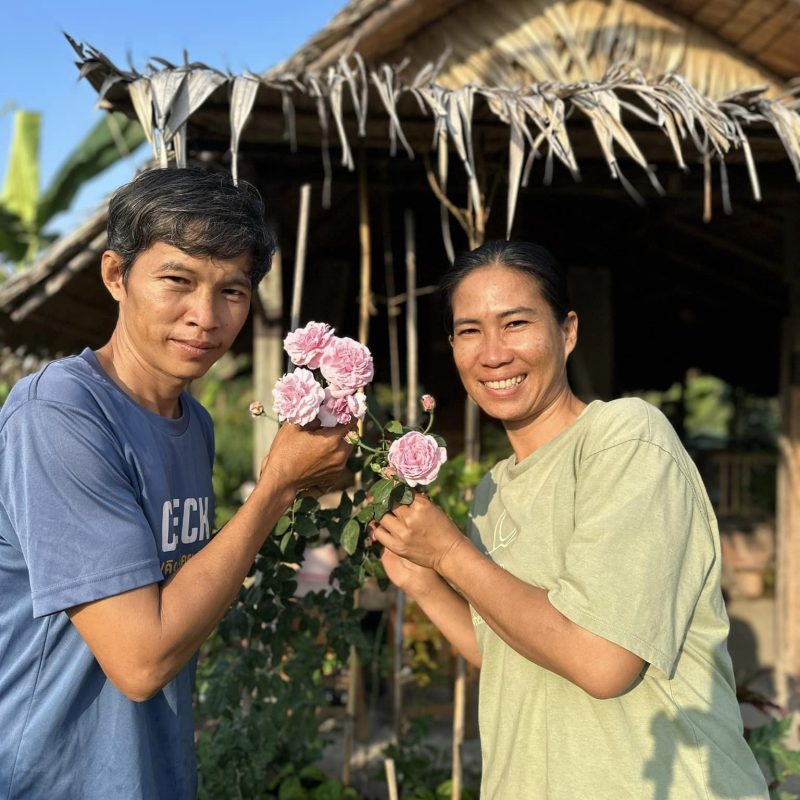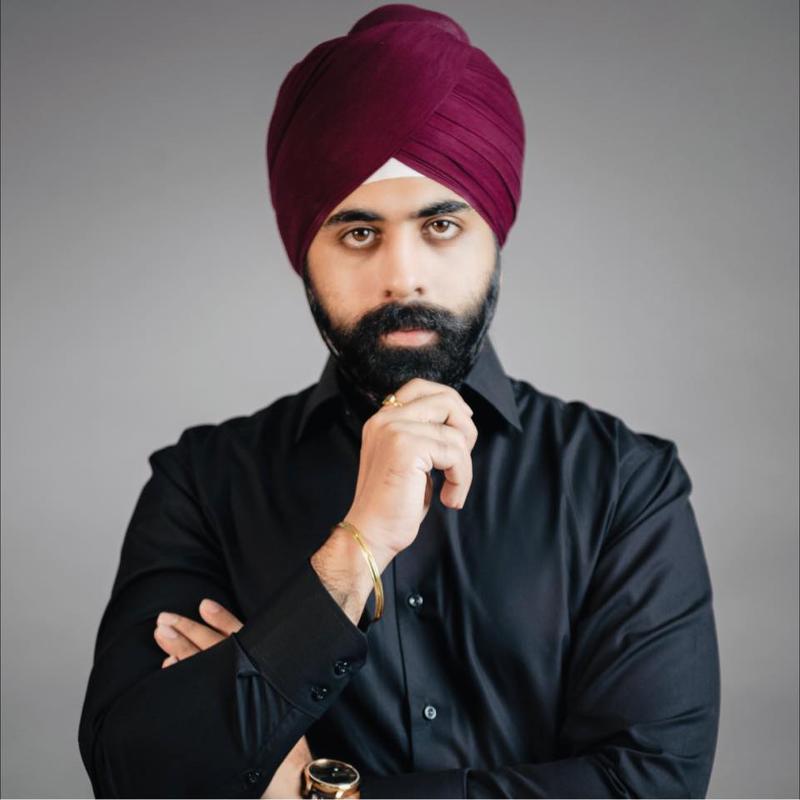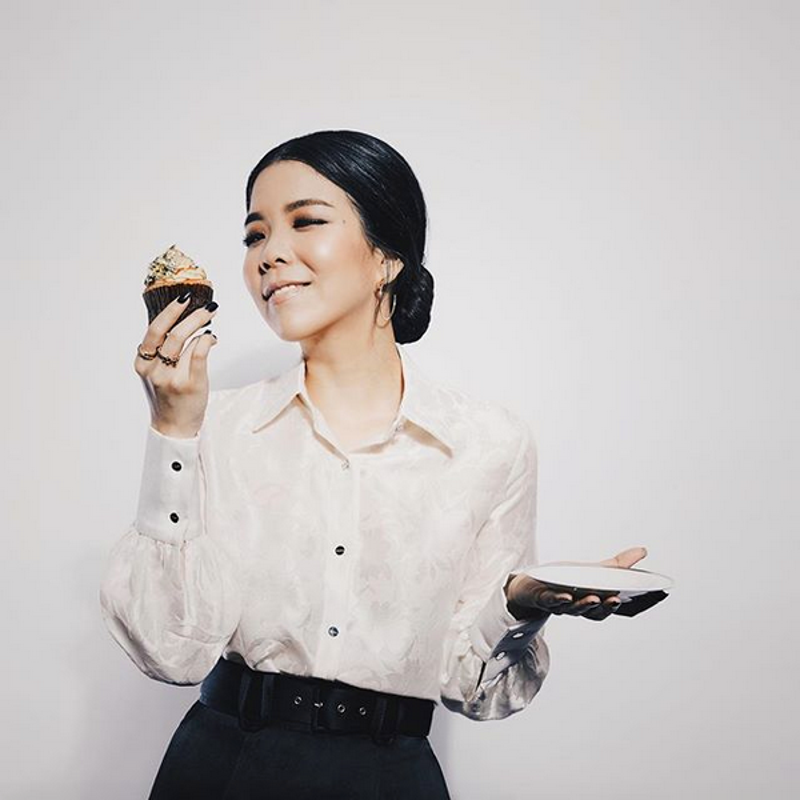Friday Future Lister: Nim Niyomsin Curating with Passion and Purpose
In a world where art reflects our shared experiences, Nim Niyomsin wants to explore the importance of representation and engagement with underrepresented voices.
Art has always been an important way to express human experiences, bridging gaps and connecting people from different cultures and backgrounds. Through creativity and imagination, art encourages new perspectives, sparks conversations and evokes feelings, playing a key role in our shared story.
For Nim, art allows people to participate in diverse human experiences and outlooks. While she is passionate about showcasing lesser-known or emerging artists, she also values presenting more established artists whose work may challenge expectations or push boundaries. By presenting a blend of both up-and-coming and renowned artists, Nim strives to create a dynamic, inclusive space where different generations, viewpoints, and artistic styles can intersect. Through this work, Nim hopes to encourage others to see art as a meaningful part of our existence.
Finding Her Place in Art
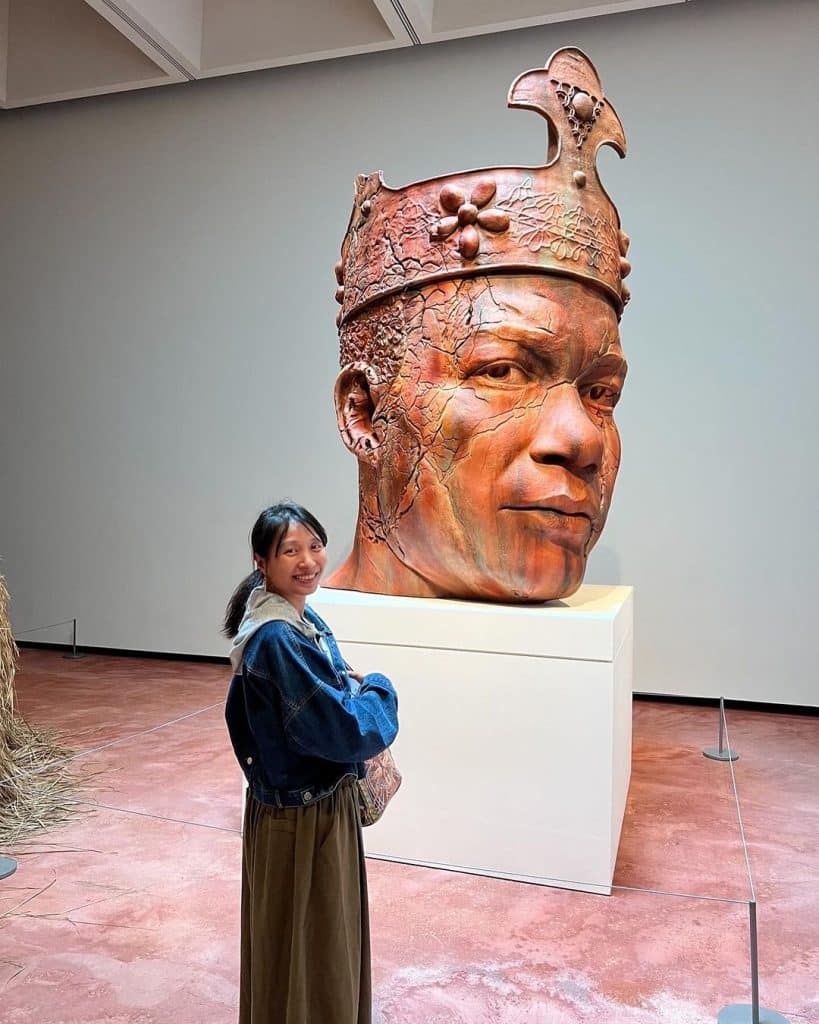
“My background was not in art,”
Nim explained as her journey into the art world began unexpectedly.
“It was the time spent visiting museums while I was in the States that I realised it was something I loved, prompting me to switch careers. To further explore my passion, I took a part-time position at an art gallery in Bangkok while maintaining a full-time job.”
Nim first studied for a Bachelor of Engineering at King Mongkut’s Institute of Technology Ladkrabang but found that it did not suit her. She then pursued a Master of Business Administration at Southeastern Louisiana University. During her time there, she frequently visited art museums, which sparked her interest in art. Nim decided to integrate art into her life by taking on a part-time job at an art gallery in Bangkok upon her return after graduating.
From her first day working in the art world, this became a significant focus for Nim. After gaining experience at a commercial gallery, she pursued an MA in Art History at Birkbeck, University of London to deepen her knowledge.
“Fortunately, I had a full-time paid job that let me work on my personal projects or part-time with organisations and institutions.”
After her graduation, she worked in TV broadcasting at Discovery Sky and Ondemand since it was a challenge to pursue a job in the art field full time. But that didn’t deter her. She took numerous art courses, which included art and politics, how to become an independent curator at Central Saint Martins, and an introduction to museum studies at the London Museum Hub.
One of Nim Niyomsin’s projects involved volunteering with the Horniman Museum and Gardens to design the exhibition display system for the schools’ and children’s section. Then onto a bigger opportunity at the Artist Pension Trust– a nonprofit organisation with an aim to promote artists around the world, helping to secure their financial future and support their arts.
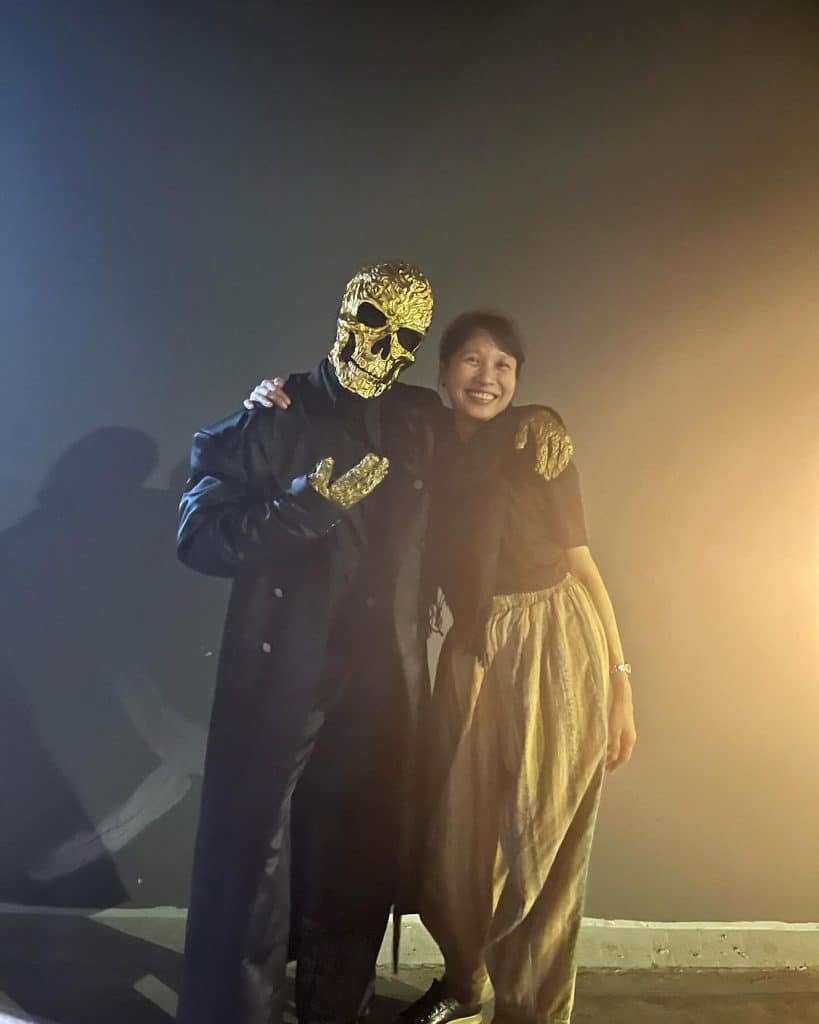
Before working with the organisation, Nim had already developed a passion for writing about art. After experiencing numerous high-quality exhibitions in the UK, she realised that many people in Thailand, particularly artists and art historians, might not have the opportunity to see such exhibitions abroad. This inspired her to start writing art articles for Thai readers. While she was working with the organisation, she connected with a wider network of artists in Southeast Asia. Each of these experiences helped shape her understanding of the art world and deepen her commitment to sharing it with others.
Her experience in the arts continued to grow, leading her to curate her first exhibition featuring a group of Thai artists while she was in London. Now, 10 years after returning to Bangkok, she works as an independent curator, pursuing her passion for art through collaborations with galleries and museums both nationally and internationally.
Talent to Share, With Love and Care
“I find that being an independent curator offers a freedom that goes beyond the limitations of institutions. I often enjoy selecting underrepresented artists who may not be chosen by galleries, as well as exploring subjects that might not capture the interest of institutions or organisations.”
Nim is interested in a variety of topics and art media, starting from the artists or artworks she likes and finds fascinating. She also explores concepts that capture her attention and values the connections between different disciplines and art. Nim seeks out new experiences and challenges that inspire her creativity and keep her engaged in her work.

“I try to focus on projects that I find interesting and meaningful, as I believe they can benefit others.”
Nim is dedicated to benefiting artists, and she is constantly evaluating whether her work is valuable or has a positive impact, which helps guide her decisions on projects. For emerging and underrepresented artists, having opportunities to showcase their work is essential for introducing themselves to the public. Providing such opportunities, along with offering advice, can encourage them to continue on this path. By presenting artists’ works and giving them the exposure they deserve, she hopes that their careers will gain attention from other galleries and institutions.
Sometimes, she invites people from non-art sectors to create work for a show or to take part in an exhibition, which bring fresh perspectives of how other people view art. She encourages the artists she works with to do research or talk to individuals outside the art world to gain a broader perspective on their subjects. Nim believes that art should be open and accessible to everyone, including those who may not usually engage with it.
“I always hope people take something meaningful when coming to an exhibition.”
Paving the Way for Art Tomorrow
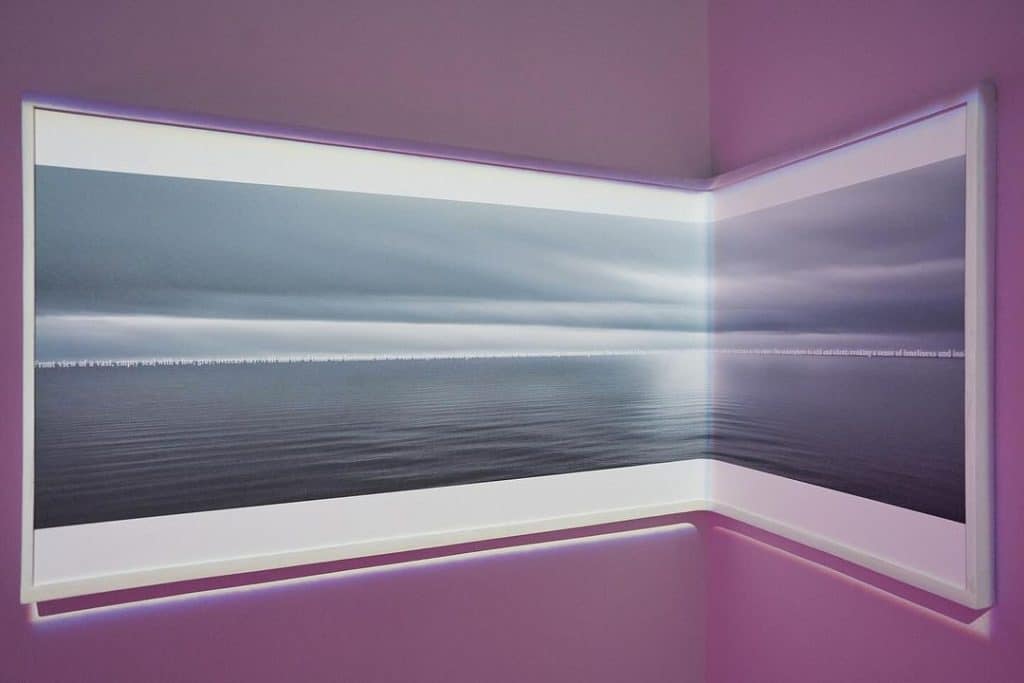
“For me, success is about using this freedom to make a meaningful contribution to the art scene and the arts as a whole.”
Nowadays, there are regular art exhibitions and shows such as the Bangkok Art Biennale and Thailand Biennale, which positively impact the Thai art scene as a whole. The public is showing more interest in art and art investment is on the rise and art toys are becoming popular. The government’s cultural sector has become more active, as seen in collection acquisitions and the availability of more support and grants.
However, despite these developments, Nim believes there is still a lack of cooperation in some areas of the art world, especially for aspects that aren’t directly linked to finance or publicity. For example, she points out the need for a better archive system, more academic research and increased funding for important projects, even if they don’t attract much attention or money. The situation of independent artists, curators and other art professionals remains challenging.
There are now more opportunities and a growing number of people interested in working in this field. Art has become a part of the public interest. With her vision to support this and never giving up on her dream, Nim hopes that beyond being just a trend, efforts can be made to make art and its content more open, relevant and purposeful.


